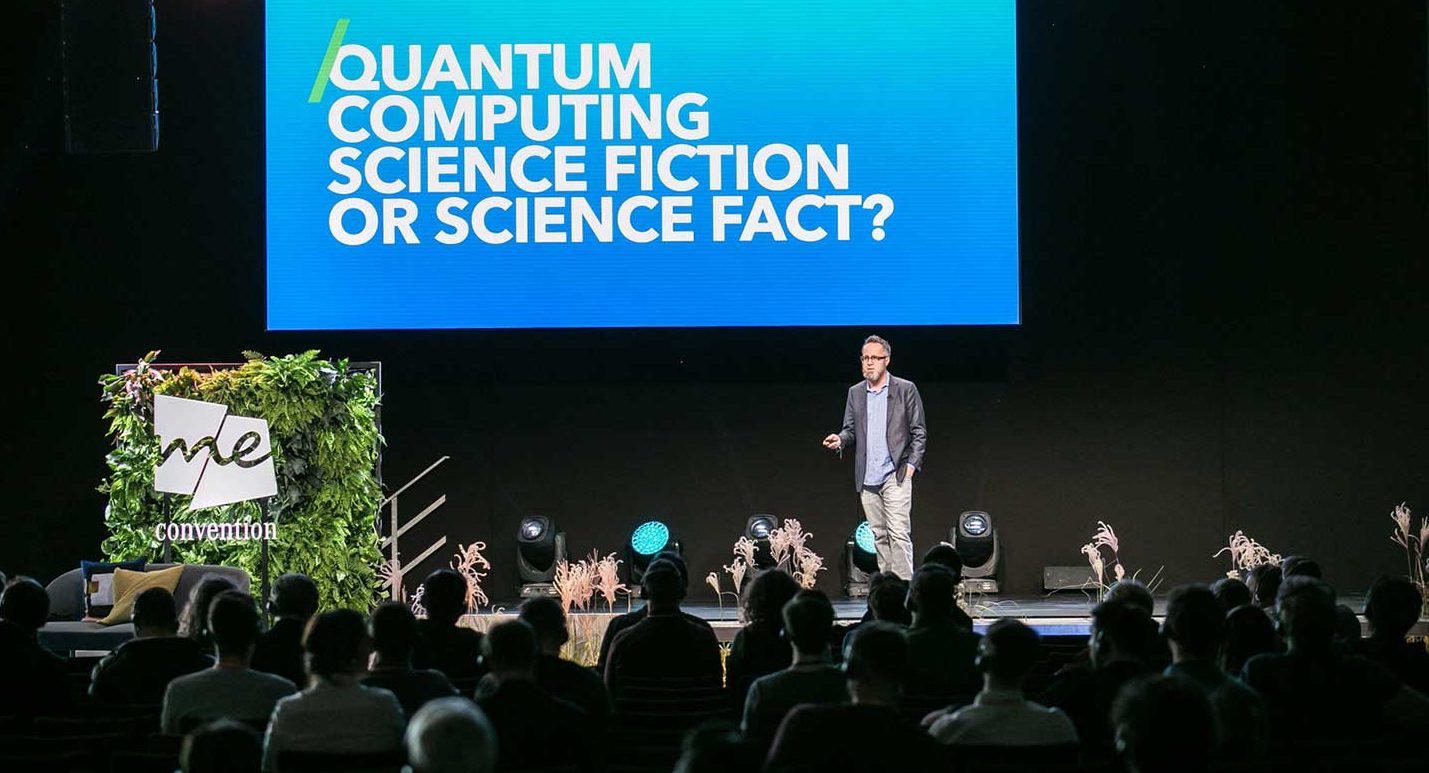By March, says whurley (aka William Hurley), Austin-based entrepreneur and quantum computing expert, the subject of his SXSW keynote is going to be a huge topic. Quantum computing is poised to be a dramatic paradigm shift in computing. More so than the blockchain, it is an extraordinarily dense concept for those who barely grasp the concept of binary numbers and find a computing system based on quantum mechanics intimidating. But whurley has a way to explain it to anyone.
"Have you ever seen Chris Ferrie's book series? Quantum Mechanics for Babies, Optical Physics for Babies?" he asks. "I got those books and then I ended up loving them, and I sent this guy a message, and we decided to team up and write Quantum Computing for Babies. What's really funny is, the hardest thing I've done in this entire time with quantum computing, it's been writing Quantum Computing for Babies."
And that is coming from someone who has also written an entire adult book, Endless Impossibilities, about quantum computing that will come out at the same time. Not "for Babies," but still a digestible introduction: "It [starts with] Quantum 101: How does quantum technology work? Into what are the possibilities? How qubits work, how it creates this exponential scale in the computing power," explains whurley. "And the promises and applications, so, predictive modeling and data analysis and encryption and decryption and communication."
The books are part of his multi-platform evangelizing about quantum computing, which includes a dedicated blog at superposition.com. Anyone who comes to see him at SXSW, he says, will walk out of his keynote knowing more than almost anyone about quantum computing. "You don't know anything about quantum computing? When you leave that room you probably know as much as any expert," he says. "That's a big goal, but you'll probably know more, because people either know the business of it, and there's very few of them, or they know the physics of it, and there's very few of them."
First, though, you have to understand a little about quantum mechanics.









